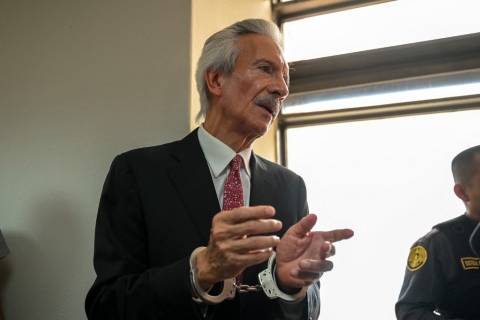
The International Center for Journalists (ICFJ) calls for the immediate release of journalist José Rubén Zamora in Guatemala and an end to the unjust legal assault on the publisher and his colleagues.
A court in Guatemala City on June 14 sentenced Zamora, a 2003 winner of the prestigious ICFJ Knight Award, to six years in prison on sham money laundering charges. The case is part of a multipronged campaign under President Alejandro Giammattei’s administration to delegitimize and silence Zamora and his colleagues at the esteemed independent news outlet, elPeriódico, which was forced to close in May due to ongoing harassment.
“The legal persecution of one of Latin America’s most celebrated journalists is a blatant and shameless attack on independent journalism in Guatemala,” ICFJ President Sharon Moshavi said. “His conviction has made headlines around the world because it is a clear affront to democratic norms. José Rubén, his colleagues and all reporters in Guatemala must be free and safe to do their jobs. ICFJ joins the chorus of press freedom advocates calling for an end to this charade and for José Rubén’s immediate release.”
Zamora was arrested July 29, 2022, during simultaneous raids on his home and newsroom, and has been behind bars in pre-trial detention ever since.
On June 14, after a trial spanning 20 days that included 11 sessions, a court in Guatemala City found Zamora guilty of money laundering but acquitted him on charges of blackmail and influence-peddling. Prosecutors, however, have said they intend to appeal those decisions and pursue 34 additional years of imprisonment.
Zamora also was recently charged with the crime of using false documents, while nine of his colleagues from elPeriódico are under investigation for obstructing justice for their coverage of the legal proceedings. A judge in May issued arrest warrants for three lawyers defending Zamora.
Since elPeriódico was founded 26 years ago, it has faced attacks under multiple government administrations. Yet despite the dangers, Zamora and his team have boldly and bravely exposed misuse of funds and power in a country that ranks among the worst in the world for corruption.
Lea la versión en español.
Fellow ICFJ Knight International Journalism Award winners signed an open letter to Zamora, offering solidarity and calling for his immediate release. Read more.